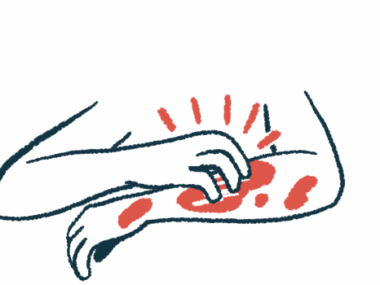Fasting for a day doesn’t worsen porphyria symptoms: Study
A survey of Yom Kippur observants found only 1 mild, fasting-related concern
Written by |

People with inactive porphyria who choose to fast for a day as part of their religious observances generally don’t see any unusual porphyria symptoms, a recent study reported.
The study, “A 25-Hour Fast Among Quiescent Hereditary Coproporphyria and Variegate Porphyria Patients is Associated With a Low Risk of Complications,” was published in Rambam Maimonides Medical Journal.
Acute forms of porphyria are marked by periods of quiescence, or inactivity, interspersed by symptom flare-ups. Research has suggested that times when food intake is severely limited, such as surgery or crash diets, could trigger porphyria attacks.
Yom Kippur, the Day of Atonement, is considered the holiest day in the Jewish calendar. Traditionally, Jews will fast during the entire day, going without food or water from sundown to sundown, about 25 hours.
In this study, a team of researchers in Israel surveyed 85 people with porphyria between February 2019 and March 2020 to see if fasting on Yom Kippur triggered a flare-up. Of the 85, 40 had variegate porphyria (VP), 21 had hereditary coproporphyria (HCP), and 24 had acute intermittent porphyria (AIP). All were ethnically Jewish.
The researchers excluded the AIP patients from their analysis after 21 of 24 reported they didn’t fast for Yom Kippur and focused instead on the remaining 61 patients with VP or HCP.
Among these, 30 fasted every year at Yom Kippur and 31 didn’t. All who fasted had been free of porphyria attacks for at least two years before they started fasting and 29 reported no unusual symptoms related to fasting. One person had some mild symptoms with fasting, but said they were temporary.
“Only 1 patient (3.3%) who fasted regularly on Yom Kippur reported having mild symptoms following the fast; he continued fasting despite these symptoms,” the researchers wrote, noting their analyses showed there was no significant association between fasting on Yom Kippur and a risk of going to a hospital emergency department. Not “even a single severe attack of porphyria was found during the month following Yom Kippur in the 383 fasts observed over 13 years,” they wrote.
The researchers said their study was limited by the small number of patients and its reliance on the patients’ ability to accurately recall their experiences. They also emphasized that findings in patients with well-controlled disease may not apply to people having attacks.
“Notwithstanding these limitations, this study is the first to show that a 25-hour fast among quiescent VP and HCP patients is associated with a low risk of complications and may be considered for specific patients,” wrote, adding more research on their finding should be done.






